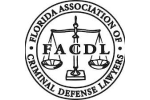to Save Yours
Bribery of a Public Official
Very little stirs media attention like breaking news of a public official suspected of taking a bribe in order to vote a certain way or to exercise his or her influence over a hot button issue. Whether this allegation is handled in State court or in the Federal criminal justice system, very few other white-collar crimes create such a sense of outrage. When Joe and Jane Public have cast their vote and put their trust in a public official only to learn that public official has been accused of taking a bribe, the typical reaction is based less on reason and more on emotion. This is problematic as should the public official go to trial, they will be judged by several of these same individuals and thus it’s important to obtain the best defense possible to fight these allegations on all fronts. Conversely, those that offer bribes to public officials can be prosecuted under the same statute and face the same penalties of public officials. Jason Mayberry practices in our Federal Criminal system regularly and is familiar with the nuances not only of the Federal system but also those issues common with white-collar criminal allegations. No doubt, if you’re accused of taking a bribe you will need the quality representation.
What is Bribery of a Public Official?
For a public official to face a bribery charge, the United States must prove that:
- The Defendant was a public official or juror;
- The Defendant demanded, sought, received, or accepted or agreed to receive or accept either personally or for another person or entity, something of value; and
- The Defendant did so knowingly and corruptly in return for being influenced in the performance of an official act or being influenced to allow or make an opportunity for the commission of a fraud on the United States or being induced to violate the Defendant’s lawful duty by failing to do some act.
In other words, the public official asked for a payoff in order to influence something or someone. That said, it is not necessary that the recipient of the bribe be a government employee. The court in United States v. Kenney, 185 F.3d 1217 (11th Cir. 1999) said that it is enough that the recipient is a private individual who occupies a position of public trust with official federal responsibilities. So, as long as someone has a degree of official responsibility for carrying out a federal program, he or she can be considered a public official.
For a layperson to face a bribery charge, the United States must prove that:
- The Defendant directly or indirectly gave or offered or promised something of value to a public official or juror; and
- The Defendant acted knowingly and corruptly, with intent to influence an official act or to influence the public official to allow or make an opportunity for the commission of a fraud on the United States or to induce the public official to violate the public official’s lawful duty by failing to do an act.
In other words, Joe Public offers something of value to a public official in order to influence them for Joe Public’s behalf.
How can We Help?
Allegations of bribery or public corruption are extremely serious. Not only can they destroy one’s career, if alleged in Federal court a prison sentence will almost always be sought. Often coupled with an allegation of wire fraud or a violation of the Hobbs Act, allegations of bribery generally hinge on a paper trail and electronic surveillance obtained via a Title III wiretap interception. As such, all the I’s must be dotted and T’s crossed both in the proof of criminal violation and the request for the wiretap warrant. You need a criminal attorney astute in the workings of our Federal criminal system and familiar with the United States Attorney’s Office in Tampa. Our firm has what you need. Contact us at 813-444-7435 today.














